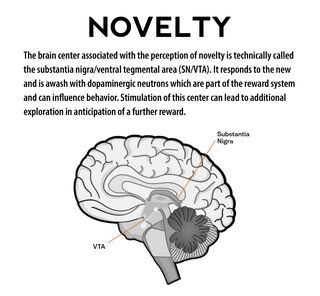Around 33 to 40 percent of the American population collects one thing or another. Yet little is known about the mysterious factors that motivate these often-passionate individuals to collect.
As a collector myself, and a physician board-certified in neurology and psychiatry trained to ask questions, I wondered too. This curiosity led me into a journey of exploration that guided me to answers which helped explain not only my behavior but also that of others.
My research led me to believe that not only can there be an instigating factor or factors for collectors to collect at all, or, in a particular area. There also are reinforcing contributors that make the activity worthwhile and pleasurable for which we now know the scientific basis. For example, the rarity of a piece can not only make it valuable, but it can also stimulate certain parts of the brain that register this uniqueness. The scientific research relating to this phenomenon is called the Oddball experiment. It registers activity in the brain using a functional magnetic resonance machine when the participant sees a string of ordinary objects punctuated by the extraordinary. Specific areas of their brains light up when the unusual are presented. This may be why we seek the unique when we collect. It stimulates our brains in areas that connect to our pleasure center. This may also have an evolutionary benefit. We explore the new until we determine whether it is a benefit to us or not.

Novelty adapted from Scientific Moment, page 24: Inside the Head of a Collector: Neuropsychological Forces at Play, 2019
Source: Shirley M. Mueller, author
Another contributing motive for some collectors is pride in acquiring exquisite objects. This is heightened by gathering like items together for the first time. During the search, excitement is further sharpened by identifying a rare piece that sets us apart from our peers and may provide recognition and admiration by associates.
Other collectors, aside from the rareness of the piece, want to acquire it at a modest price. That is their joy and gives them pride in being so astute. It’s the possession for comparatively little money that excites them.
Then, there are collectors who feel a sense of history when they assemble precious items. By owning antiquities, they feel closer to the past or perhaps even dead ancestors, important people, or circumstances of long ago. This is the reverse of feeling a sense of history in looking toward the future. This collector may hope to build a legacy by passing on special objects to future generations.
Other collectors find that the collecting process provides intellectual satisfaction. The gathering of pieces in a specific area requires discipline, knowledge, and an eye for the unusual or particularly beautiful. This is the case for me, I believe, because I have always been academically minded, which is why I chose to go to medical school and then into what is known as a rigorous discipline, neurology.
Collectors also gather what they consider treasures to enhance their network of friends; in other words, they have a social motivation for collecting. Perhaps their love of objects came first; then, somewhere along the line, they realize there are people like themselves. They may find them independently or join organizations for like-minded people. Friendships forged through these vehicles no doubt expand social lives.
The enjoyment of arranging and rearranging a collection can be the motivation for other collectors. Though this may serve as a means of control, it could also simply be the demonstration of organizational skills applied to collecting as taste and knowledge accumulate.
Last, and certainly not least, is that all reinforcers to collect involve anticipation. In its nascent stage, yet fulfilled, the collector’s craving allows her to imagine anything she wants about the desired returns the object will bring. We know that it is in this phase that the pleasure center burns most brightly. Once the prize is obtained, the pleasure center quiets. In other words, the anticipation of the reward is more exciting to our pleasure center than possessing it. This explains, in part, why collecting frequently transcends a mere pastime and often becomes a passion. It gives sufficient pleasure that the participant wants to continue it more and more vigorously.





Comments